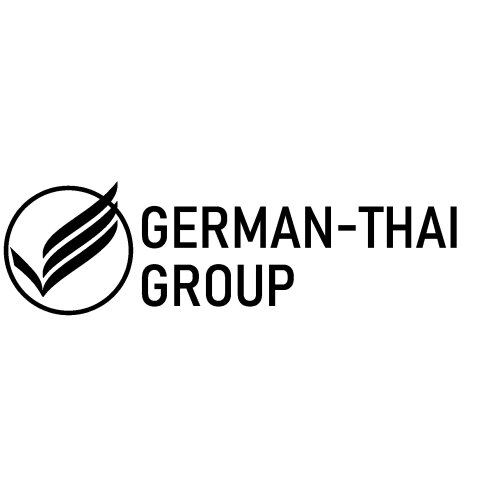ทนายความ การเข้าซื้อกิจการ / การจัดหาเงินทุนโดยอาศัยหนี้ ที่ดีที่สุดใน พัทยา
แบ่งปันความต้องการของคุณกับเรา รับการติดต่อจากสำนักงานกฎหมาย
ฟรี ใช้เวลา 2 นาที
รายชื่อทนายความที่ดีที่สุดใน พัทยา, ประเทศไทย
1. เกี่ยวกับกฎหมายการเข้าซื้อกิจการ / การจัดหาเงินทุนโดยอาศัยหนี้ในพัทยา, ประเทศไทย
การเข้าซื้อกิจการและการจัดหาเงินทุนโดยอาศัยหนี้ในพัทยา ต้องปฏิบัติตามกฎหมายไทยครบวงจร ทั้งด้านบริษัท ภาษี และทรัพย์สินประกอบกับข้อบังคับท้องถิ่นของจังหวัดชลบุรีและเมืองพัทยา
โดยทั่วไป กระบวนการนี้จะเกี่ยวข้องกับการตรวจสอบสถานะทรัพย์สิน การถือหุ้นในบริษัทที่ถือทรัพย์สิน และวิธีการระดมทุน เช่น เงินกู้จากธนาคารไทยหรือต่างประเทศ รวมถึงการคุ้มครองผู้ลงทุนต่างด้าวภายใต้กฎหมายไทย
พัทยามีความสำคัญในเชิงธุรกิจท่องเที่ยว จึงมักมีดีลที่เกี่ยวข้องกับโรงแรม รีสอร์ท และพื้นที่ติดชายหาด ซึ่งต้องพิจารณาประเด็นข้อจำกัดการถือครองที่ดินของต่างด้าวด้วย
2. ทำไมคุณอาจต้องการทนายความ
สถานการณ์ 1 ซื้อโรงแรมหรือรีสอร์ทในพัทยา ผู้ซื้อจำเป็นต้องตรวจสอบแหล่งที่มาทรัพย์สินและการถือครองที่ดิน เพื่อหลีกเลี่ยงความเสี่ยงทางกฎหมายเรื่องการถือครองโดยต่างชาติ
การตรวจสอบ Due Diligence จะครอบคลุม title deed, lease agreements และสัญญาเบ็ดเสร็จอื่นๆ ทนายความช่วยหาจุดอ่อนในสัญญาและเสนอแนวทางปรับโครงสร้าง
สถานการณ์ 2 ใช้เงินกู้เพื่อซื้อกิจการด้วยหนี้จากธนาคารท้องถิ่นหรือต่างประเทศ ทนายความจะช่วยประเมินข้อกำหนดเรื่อง collateral, interest rate, และกรอบสัญญาให้สอดคล้องกฎหมายไทย
สถานการณ์ 3 โครงสร้างบริษัทที่ซื้อกิจการในพัทยา อาจต้องตั้งบริษัทใหม่หรือโครงสร้างองค์กรใหม่ เพื่อป้องกันความเสี่ยงทางภาษีและกฎหมายการถือหุ้น
สถานการณ์ 4 กรณีที่อสังหาริมทรัพย์เกี่ยวข้องกับการถือครองโดยต่างชาติ ทนายความจะอธิบายตัวเลือก เช่น การถือหุ้นผ่านบริษัทไทย หรือรูปแบบสัญญาเช่าระยะยาว
สถานการณ์ 5 เหตุขัดแย้งระหว่างฝ่ายผู้ขายและผู้ซื้อเกี่ยวกับ Inventories หรือสัญญาเช่าปลายทาง ทนายความช่วยร่างข้อตกลงใหม่และหาทางออกตามกฎหมาย
สถานการณ์ 6 การปฏิบัติตามกฎหมายการแข่งขัน หลังการควบรวม กฏหมายการแข่งขันอาจตรวจสอบความเป็นไปได้ในการทำ M&A ในพัทยา
3. ภาพรวมกฎหมายท้องถิ่น
กฎหมายที่ 1: พระราชบัญญัติบริษัท พ.ศ. 2542 กำหนดกรอบการจัดตั้งบริษัท การโอนหุ้น และการบริหารองค์กรในประเทศไทย ซึ่งมีผลกับดีลในพัทยาเช่นกัน
กฎหมายที่ 2: พระราชบัญญัติลำดับทรัพย์สินของคนต่างด้าว (Foreign Business Act) พ.ศ. 2542 กำหนดข้อห้ามหรือข้อจำกัดในการประกอบธุรกิจบางประเภท สำหรับผู้ถือหุ้นต่างชาติในบริษัทไทย
กฎหมายที่ 3: พระราชบัญญัติคุ้มครองการค้าและการร่วมทุน (Trade Competition Act) พ.ศ. 2562 ควบคุมการควบรวมและการซื้อกิจการที่อาจลดการแข่งขันในตลาดไทย ซึ่งมีบทบาทสำคัญในการพิจารณา M&A ในพัทยา
ล่าสุด มีการปรับปรุงและตีความบางมาตราเพื่อให้สอดคล้องกับสถานการณ์เศรษฐกิจและการลงทุนภาคธุรกิจท่องเที่ยวในพัทยา และมักมีการอัปเดตผ่านราชกิจจานุเบกษา
หมายเหตุ: กฎหมายที่กล่าวถึงเป็นกรอบทั่วไปสำหรับธุรกิจในประเทศไทย พัทยาไม่มี "กฎหมายเฉพาะจังหวัด” ในการควบคุมการเข้าซื้อกิจการ แต่ข้อกำหนดระดับพื้นที่อาจปรับใช้ร่วมกับการอนุมัติท้องถิ่นของเมืองพัทยา/จังหวัดชลบุรี
4. คำถามที่พบบ่อย
อะไรคือการเข้าซื้อกิจการโดยอาศัยหนี้ในพัทยาและทำไมจึงต้องการทนายความ?
การเข้าซื้อโดยอาศัยหนี้คือการซื้อกิจการโดยใช้เงินกู้เป็นส่วนใหญ่ ทนายความช่วยให้คุณตรวจสอบข้อตกลงเงินกู้และสัญญาซื้อขายอย่างถูกต้อง เพื่อป้องกันความเสี่ยงทางกฎหมาย
อย่างไรฉันจะเริ่มกระบวนการตรวจสอบสถานะทรัพย์สินในพัทยา?
เริ่มจากการขอสำเนาโฉนดและทะเบียนทรัพย์สินจากกรมที่ดิน หลังจากนั้นตรวจสอบ lien, encumbrances และสัญญาเช่ากับคู่ค้า ผู้เชี่ยวชาญจะช่วยวิเคราะห์ผลกระทบในการโอนหุ้น
เมื่อไหร่ควรเรียกทนายความในช่วงขั้นตอน?
เรียกตั้งแต่ขั้นแรกของการเจรจา เพื่อช่วยทำ Due Diligence, วิเคราะห์ความเสี่ยง และร่างสัญญา ควรมีทนายที่เชี่ยวชาญกฎหมายไทย-ธุรกิจในพัทยา
ที่ไหนที่ต้องขออนุมัติทางกฎหมายก่อนปิดดีล?
โดยทั่วไป ต้องขออนุมัติจากหน่วยงานที่เกี่ยวข้อง เช่น กรมพัฒนาธุรกิจการค้า และอาจพิจารณาอนุมัติจากหน่วยงานการแข่งขันขึ้นกับขนาดและอุตสาหกรรมที่เกี่ยวข้อง
ทำไมการถือหุ้นในบริษัทไทยจึงสำคัญเมื่อมีที่ดิน?
ต่างชาติไม่สามารถถือครองที่ดินได้ตรงๆ จึงมักใช้โครงสร้างบริษัทไทย หรือสัญญาเช่าระยะยาวเป็นทางเลือก เพื่อให้กิจการดำเนินต่อไปในพัทยา
สามารถนำเงินกู้จากต่างประเทศมาใช้ในพัทยาได้หรือไม่?
ได้ แต่ต้องปฏิบัติตามข้อกำหนดของธนาคารแห่งประเทศไทยและข้อบังคับทางการเงินระหว่างประเทศ ไทยอาจมีข้อจำกัดเรื่องภาษีและการถ่ายโอนทุน
ค่าธรรมเนียมและค่าใช้จ่ายในการจ้างทนายความประมาณเท่าไร?
ค่าใช้จ่ายขึ้นกับความซับซ้อนของดีล โดยทั่วไปอยู่ระหว่าง 0.5-2% ของมูลค่าโอน พร้อมค่าใช้จ่ายอื่นๆ เช่น การตรวจสอบ Due Diligence และภาษีธุรกิจ
ระยะเวลาของกระบวนการ Due Diligence ใช้เวลานานเท่าไร?
แล้วแต่ขอบเขตรายละเอียด แต่โดยปกติใช้ 2-6 สัปดาห์ สำหรับทรัพย์สินที่มีความซับซ้อนสูงในพัทยา
คุณสมบัติที่ทนายความควรมีเพื่อทำ M&A ในพัทยา?
ควรมีประสบการณ์ในกฎหมายบริษัท กฎหมายทรัพย์สิน และกฎหมายการแข่งขัน พร้อมความรู้การปฏิบัติตามข้อบังคับท้องถิ่นของพัทยา
ความแตกต่างระหว่างซื้อหุ้นบริษัทกับซื้อทรัพย์สินในพัทยาคืออะไร?
ซื้อหุ้นบริษัทป้องกันความเสี่ยงด้านทรัพย์สิน แต่ยังต้องตรวจสอบหนี้และสิทธิ์อื่นๆ ในบริษัท ในขณะที่ซื้อทรัพย์สินตรงๆ ช่วยควบคุมทรัพย์สินโดยตรงแต่มีซับซ้อนด้านโอนกรรมสิทธิ์
ความแตกต่างระหว่างกฎหมายต่างประเทศและไทยในการให้เงินกู้?
ต่างชาติอาจต้องปฏิบัติตามข้อบังคับของธนาคารแห่งประเทศไทยและกฎหมายทุนต่างประเทศ กฎหมายไทยกำหนดเงื่อนไขการโอนเงินข้ามประเทศชัดเจน
ฉันควรจ้างทนายความก่อนปิดดีลในพัทยาเมื่อไร?
ควรจ้างตั้งแต่เริ่มเจรจา เพื่อให้คำแนะนำด้านโครงสร้างทางกฎหมาย ตรวจสอบ Due Diligence และร่างสัญญา
หากดีลล้มเหลว จะรับมือกับข้อพิพาทได้อย่างไร?
ทนายความจะช่วยระบุสิทธิเรียกร้องชดเชย ค่าเสียหาย และกระบวนการฟ้องร้องตามสัญญา รวมถึงการเก็บหลักฐานและข้อโต้แย้ง
5. ทรัพยากรเพิ่มเติม
- กรมพัฒนาธุรกิจการค้า (DBD) - แหล่งข้อมูลการจดทะเบียนบริษัทและข้อกำหนดทางธุรกิจในประเทศไทย
- กรมที่ดิน (Department of Lands) - ข้อมูลการถือครองทรัพย์สินและการโอนทรัพย์สินในประเทศไทย
- ธนาคารแห่งประเทศไทย (BOT) - กฎระเบียบเงินกู้ระหว่างประเทศและการเคลื่อนย้ายทุน
ลิงก์อ้างอิงอย่างเป็นทางการ:
กรมพัฒนาธุรกิจการค้า (DBD) • กรมที่ดิน • ธนาคารแห่งประเทศไทย (BOT)
6. ขั้นตอนถัดไป
- กำหนดวัตถุประสงค์ ระบุเป้าหมายธุรกิจและโครงสร้างการลงทุนที่เหมาะสม ใช้เวลาประมาณ 1-2 สัปดาห์
- เลือกทนายความผู้เชี่ยวชาญ คัดเลือกบริษัทกฎหมายที่มีประสบการณ์ M&A ในพัทยา ใช้เวลา 1-2 สัปดาห์
- เตรียมเอกสารก่อข้อเสนอตั้งต้น รวบรวมบริษัท เป้าหมายทรัพย์สิน และเอกสารการเงินเบื้องต้น ประมาณ 1-3 สัปดาห์
- ดำเนิน Due Diligence ตรวจสอบทรัพย์สิน สัญญา และหนี้สิน ปิดภายใน 2-6 สัปดาห์
- ร่างและตรวจสอบสัญญาซื้อขาย ปรับแก้ตามข้อเสนอของทุกฝ่าย ใช้ 1-3 สัปดาห์
- ขออนุมัติ กฎหมายและการเงิน ตรวจสอบข้อกฎหมายที่เกี่ยวข้อง และขออนุมัติที่จำเป็นในพัทยา/ชลบุรี ใช้ 2-4 สัปดาห์
- ปิดดีลและโอนทรัพย์สิน ทำการโอนหุ้น/ทรัพย์สินและบันทึกบัญชี ใช้ 1-2 สัปดาห์
Lawzana ช่วยคุณค้นหาทนายความและสำนักงานกฎหมายที่ดีที่สุด ใน พัทยา ผ่านรายชื่อผู้เชี่ยวชาญด้านกฎหมายที่มีคุณสมบัติเหมาะสมที่คัดสรรและตรวจสอบล่วงหน้า แพลตฟอร์มของเรานำเสนอการจัดอันดับและโปรไฟล์โดยละเอียดของทนายความและสำนักงานกฎหมาย ช่วยให้คุณเปรียบเทียบตามสาขากฎหมาย รวมถึง การเข้าซื้อกิจการ / การจัดหาเงินทุนโดยอาศัยหนี้ ประสบการณ์ และความคิดเห็นของลูกค้า
แต่ละโปรไฟล์ประกอบด้วยคำอธิบายเกี่ยวกับสาขากฎหมายของสำนักงาน รีวิวจากลูกค้า สมาชิกในทีมและหุ้นส่วน ปีที่ก่อตั้ง ภาษาที่พูด ที่ตั้งสำนักงาน ข้อมูลการติดต่อ การมีตัวตนบนโซเชียลมีเดีย และบทความหรือแหล่งข้อมูลที่เผยแพร่ สำนักงานส่วนใหญ่บนแพลตฟอร์มของเราพูดภาษาอังกฤษและมีประสบการณ์ทั้งในเรื่องกฎหมายท้องถิ่นและระหว่างประเทศ
ขอใบเสนอราคาจากสำนักงานกฎหมายชั้นนำ ใน พัทยา, ประเทศไทย — รวดเร็ว ปลอดภัย และไม่ยุ่งยาก
ข้อจำกัดความรับผิดชอบ:
ข้อมูลที่ให้ไว้ในหน้านี้มีวัตถุประสงค์เพื่อเป็นข้อมูลทั่วไปเท่านั้นและไม่ถือเป็นคำแนะนำทางกฎหมาย แม้ว่าเราจะพยายามตรวจสอบความถูกต้องและความเกี่ยวข้องของเนื้อหา แต่ข้อมูลทางกฎหมายอาจเปลี่ยนแปลงได้ตามกาลเวลา และการตีความกฎหมายอาจแตกต่างกันไป คุณควรปรึกษาผู้เชี่ยวชาญด้านกฎหมายที่มีคุณสมบัติเหมาะสมเพื่อขอคำแนะนำเฉพาะสำหรับสถานการณ์ของคุณเสมอ
เราปฏิเสธความรับผิดทั้งหมดสำหรับการกระทำที่ทำหรือไม่ทำตามเนื้อหาในหน้านี้ หากคุณเชื่อว่าข้อมูลใดไม่ถูกต้องหรือล้าสมัย โปรด contact us และเราจะตรวจสอบและแก้ไขตามความเหมาะสม















